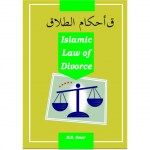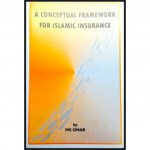More About Us
MS Omar & Associates is a niche market law firm based in Durban which was established in July 1983 and specializes in all aspects of Corporate and Commercial law, Family Law, Trusts Law, Estate Planning, Litigation, Dispute Resolution, Labour Law, Conveyancing and Shariah law including Islamic Finance.
 SUPPORT
SUPPORT
Don’t hesitate to contact M.S Omar & Associates regarding any questions you have or for further information. You can reach us online, or by calling (031) 306 3282
Summary of Key Differences Between Conventional and Islamic Banking
1. The primary function of money is that it is purely a medium of exchange. Money should not be traded as a commodity which fetches a price in the form of interest, as is the case in conventional banking practice. In other words, money cannot be the object of trade per se; to the extent that money is exchanged for money, such exchange should be effected at face or par value, with no discount or premium, on either side. The logical result of this, is that any contractually stipulated increase on a fixed debt arising from a recognized commercial contract , such as a sale, is deemed to be impermissible interest. This also means that a monetary debt cannot be sold at a premium or discount. The 2008 financial crisis in the USA , attributed to the sale of subprime mortgage debt at a premium, could have been avoided, if the basic Shariah principle prohibiting the sale of a debt had been adhered to.
It should be borne in mind that , from an Islamic perspective, a loan is deemed to be a gratuitous , humanitarian transaction, to be resorted to in genuine need, generating no contractually agreed return or benefit thereon. To the extent that the lender wishes to generate a return on his loan, the lender must participate as an equity partner in the business of the borrower, and thereby share in the profits and losses of the joint venture.
2. The concept of risk in Islamic banking is fundamental: it is intertwined with profit and loss: a trader is not entitled make a profit, unless the trader has correspondingly assumed the risk of loss ( ضمان) in the underlying commodity. For example, when a bank buys a commodity , and resells the same , in terms of a separate , independent transaction, at a profit to a client, the profit represents the return in lieu of the Shari’ risk , that the bank, as owner, has assumed in the commodity. In order to assume the requisite risk, the bank must take actual or constructive delivery of the commodity, and thereby assume the risk of destruction or deterioration, in any form, prior to its resale to a third party. This requirement that the acquisition of profit is intertwined with the assumption of risk, is expressed in the well known Fiqh maxim من له الغنم فعليه الغرم
3. Shariah law prohibits a commercial contract of gain, founded upon intolerable Ghararغرر, as a foundational principle: manifest uncertainty of contractual result or outcome, which largely permeates the subject matter of the contract( مستور العاقبة ). A good example is a conventional insurance contract: the insurer undertakes to indemnify the insured against a future specified uncertain event , which may or may not occur, in exchange for a premium. The insurer gains absolutely if the event never occurs. Even if the future contingent event were to occur , it’s timing, nature and extent is manifestly uncertain at the time the insurance contract is concluded.
4. The subject matter of all the financial instruments of an Islamic Bank is Shariah-compliant commodities, whose ownership and risk is transferred to the client , in accordance with the requirements of the specific recognized contract, such as a Murabaha and a Musharaka. In this regard, two points should be noted. First, the reciprocal consideration on both sides ( delivery of commodity and payment of price, both deferred) should not be contractually stipulated and obligated to be deferred, on both sides, as this falls within the meaning of the well-known prohibition, بيع الكالى بالكالى او بيع الدين بالدين. ( effectively, deferred in exchange for deferred, to prevent interest and disputes). Second, one contract must not be conditional with another, in a single “ binding “ transaction, such as, “ I sell you my house, on the condition that you lend me R 100 000,00”. This falls within the meaning of the well-known prohibition النهى عن الصفقتين فى صفقة واحدة, whose rationale is to avoid interest in the guise of two interlinked conditional contracts, the one dependent upon the performance of the other. This prohibition should be distinguished from a situation where the one contracting party makes a unilateral binding promise to do something, outside the contract of sale, whose conclusion and effect is immediate, and is not dependent upon the prior or subsequent unilateral promise.الوعد المنفصل عن عقد البيع لا يلتحق بأصل العقد.
5. The Mudarabah partnership pool of an Islamic bank ( or , an Islamic window) is constituted by the total aggregate funds of investors ( comprising all investment accounts), which funds are advanced to the bank upon trust, الامانة , and employed by the bank to best advantage, in its capacity as the Mudarib( working partner) , inappropriate Shariah compliant instruments and transactions, upon a pre-agreed profit sharing ratio, as agreed between the investors, on the one hand, and the bank , on the other. Losses in the ring-fenced, separate Mudarabah pool , which are attributed to inter alia market fluctuations, are borne by the investors. However, the bank remains liable under all circumstances for losses attributed to proven negligence or misconduct التعدى و التقصير. By contrast, depositors in a conventional bank make loans to the the bank, and receive in return a fixed rate of interest thereon.
And Allah Knows Best
M S Omar
19 September 2021
Fatwa of Allamah Mufti Taqi Usmani حفظه الله on the Permissibility of Covid 19 Vaccinations
الاستاذ الفاضل الكبير حفظه الله
ما حكم التطعيم بلقاح فيروس كورونا ( Covid 19) في الوقت الراهن : هل هو اباحة او استحبابا او وجوبا ، خاصة اذا كان المرض يؤدي ألى الأضرار بالغير.
محمد شعيب عمر
المحامي بالقضاء المدني و الشرعي ،
جنوب افريقيا
12 September 2021
Answer of Allama Mufti Taqi Usmani حفظه الله
بسم الله الرحمن الرحيم
حكم اختيار أسباب لعلاج مرض بالمعروف مباح ومسنون فى الشريعة، وفى حكمهاأسباب معروفة للوقاية عن المرض، وأخذ اللقاح من قبيل أسباب الوقاية فهو مباح وعلى الأكثر فهو سنة. وإذا صدر قرار ملزم بأخذ اللقاح من الحكومة، يحتمل أن يصير أخذ اللقاح
واجبا بسبب أمر ولي الأمر
Translation
Our Distinguished Teacher
Question
“ What is the Shariah ruling relating to the taking of vaccination against the Covid -19 virus in the current circumstances? Is such vaccination permissible, preferable, or compulsory, especially where the contagiousness of the disease leads to the harming of other persons “.
Fatwa of Allamah Mufti Taqi Usmani حفظها الله
“ The ruling of voluntarily adopting the generally recognized means of treatment for a disease is permissible and sanctioned in the Shariah( as Sunnah). Such permissibility includes the well known means of prevention of a disease. The taking of a vaccination falls within the means of prevention , and is accordingly permissible; at the most, it is Sunnah. If the government issues a binding decision for taking a vaccination, then, the taking of a vaccination ought to become compulsory by reason of a directive of the head of state.”
Translated: M S Omar
And Allah Knows Best
27 September 2021
Durban
More Articles ...
- On Lifetime Donations by Parents to Children: Summary of Shariah Law Perspectives
- On the Fundamental Differences Between Sukuk and Bonds
- Guidance Note On The Transferring Zakah To An Agent Of An Eligible Recipient
- Basic Guidelines On Identity of Zakaatable Assets
- Assisting Financially Distressed Persons Affected by Recent Flooding From Zakah Funds







